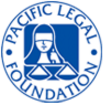
PLF Release
WASHINGTON, D.C.; October 5, 2016: The Supreme Court is being asked to hear the important First Amendment case of Bob Bennie, a Lincoln, Nebraska, financial analyst and Tea Party member who was targeted for retaliation by state financial regulators because he expressed political opinions in the press that they didn’t like.
In his petition for certiorari just filed with the Supreme Court, Mr. Bennie is asking the justices to hear his lawsuit over regulators’ retaliation against him, and to direct all courts, henceforward, to review such cases in a way that is strongly protective of First Amendment free speech rights. He is represented, without charge, by attorneys with Pacific Legal Foundation (PLF), a national watchdog organization that litigates for limited government and individual rights. Also assisting as local counsel is attorney Gene Summerlin, a partner with Husch Blackwell LLP.
In payback for Bob Bennie’s exercise of his free speech rights, a vendetta campaign was launched
The regulatory crusade against Bob Bennie started after the Lincoln Star Journal, in 2010, quoted him making controversial, negative comments about President Obama, to the effect that he was “a communist” and an “evil man.” After that article appeared, officials with the Nebraska Department of Banking and Finance launched a series of retaliatory actions. They repeatedly contacted his then-employer, LPL Financial, to complain about his political views and to ask LPL to sanction him; they threatened LPL by saying “the Department may invoke whatever administrative action deemed necessary and appropriate under its authority against both Mr. Bennie and/or LPL Financial to insure compliance"; and one regulator went so far as to tell a colleague that he hoped Bob Bennie “will eventually hang himself along with LPL.” Bennie was ultimately let go from LPL.
Courts give state agency a pass — even while admitting bureaucrats retaliated against constitutionally protected speech
Bennie filed the current case — a federal civil rights lawsuit — in 2011. The district court agreed that regulators retaliated against Bennie for his constitutionally protected comments. However, the court still ruled against him on the key legal test for determining whether a plaintiff may prevail in such cases — i.e., would a person of “ordinary firmness” be chilled in the further exercise of First Amendment rights by the government’s retaliatory actions? The district court held that the retaliation against Mr. Bennie would not have such a chilling effect on the average person of “ordinary firmness.” The court came to this determination despite evidence that Mr. Bennie subsequently muted his controversial comments and despite the fact he was dismissed from LPL after the state began applying pressure to the company.
The Eighth U.S. Circuit Court of Appeals upheld the trial court’s decision on a 2-1 vote. But the panel did not conduct an independent inquiry into the facts of this case, instead simply relying on the district court’s findings in holding that a person of “ordinary firmness” would not be chilled by what happened to Mr. Bennie.
“Our First Amendment rights can be cancelled out if government can punish people for exercising those rights,” said PLF attorney Wen Fa. “That is what happened to Bob Bennie — he was the victim of a vendetta campaign by bureaucrats because they were offended by his political views. You don’t have to agree with his comments to grasp the importance of the principles he is fighting for in this case. If we value First Amendment freedoms, government cannot be permitted to penalize people for using those freedoms — and the courts at every level must go the extra mile to guard against such abuses of public-sector power.
“Unfortunately, Bob Bennie’s free speech rights didn’t get the respect and protection they are due when he was before the appellate court,” Fa continued. “Instead of conducting its own rigorous, independent review of the case, the Eighth Circuit simply rubber-stamped the findings of the trial court. When First Amendment freedoms are at stake, no court can be allowed to rely on some other court’s work. We are asking the Supreme Court to take this case and affirm that, when government retaliation against free speech is alleged, every court must do its job, fully and vigorously, to protect victims and hold violators to account."
“The right to free speech is an essential element of freedom in the United States,” said Bob Bennie. “I am grateful for the assistance of Pacific Legal Foundation in fighting to protect the First Amendment. I am also thankful to the many constitutional law experts who have written amicus briefs in support of this case when it was before the Eighth Circuit. I firmly believe that if we as citizens don’t fight to protect our rights, the nature of government bureaucrats is to take those rights away.”
The case is Bennie v. Munn. More information, including the petition for certiorari, is available at PLF’s website: www.pacificlegal.org
Wen Fa, Principal Attorney PLF
[email protected], (916) 419-7111
Damien M. Schiff, Principal Attorney PLF
Principal Attorney, Pacific Legal Foundation
[email protected], (916) 419-7111

 RSS Feed
RSS Feed
